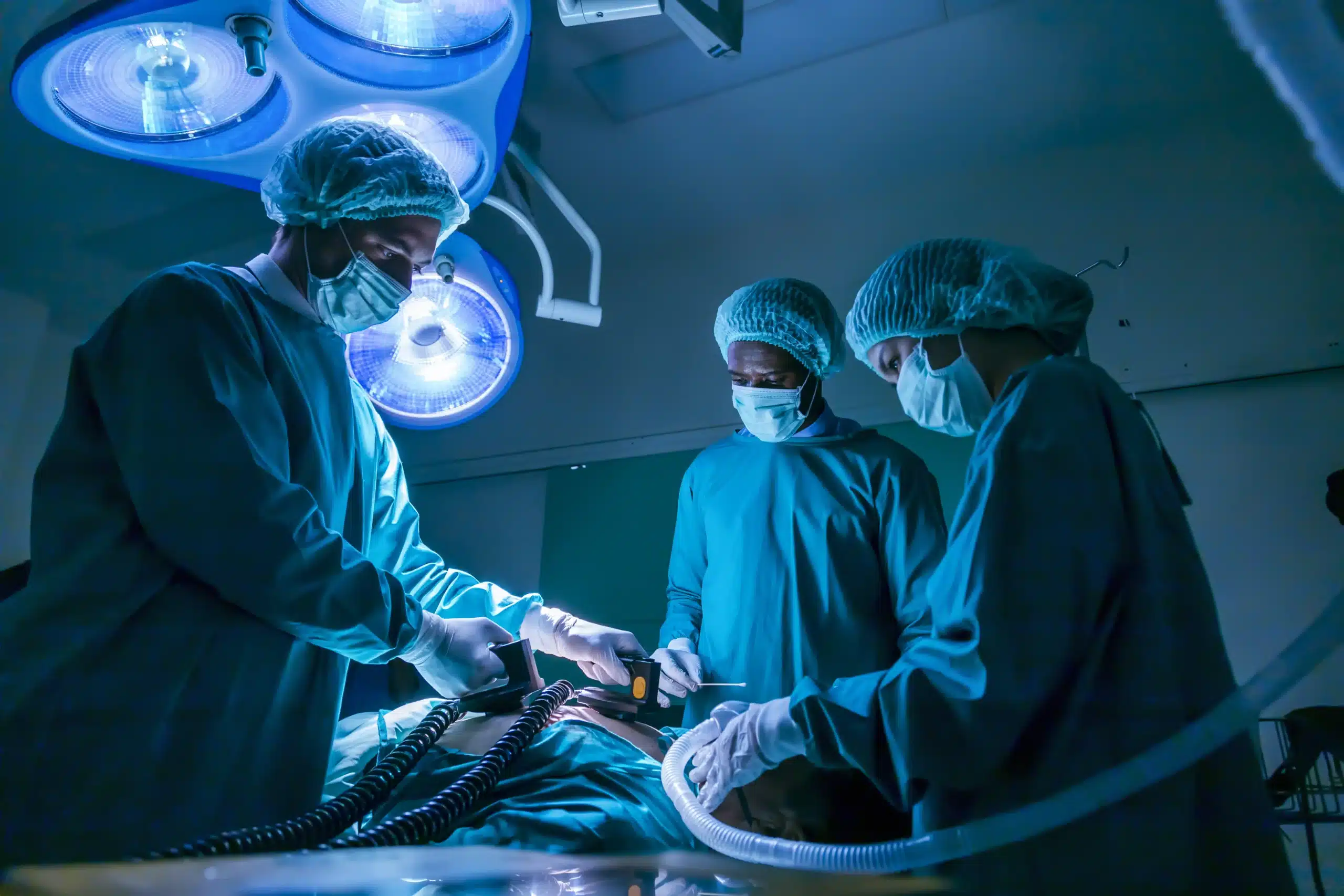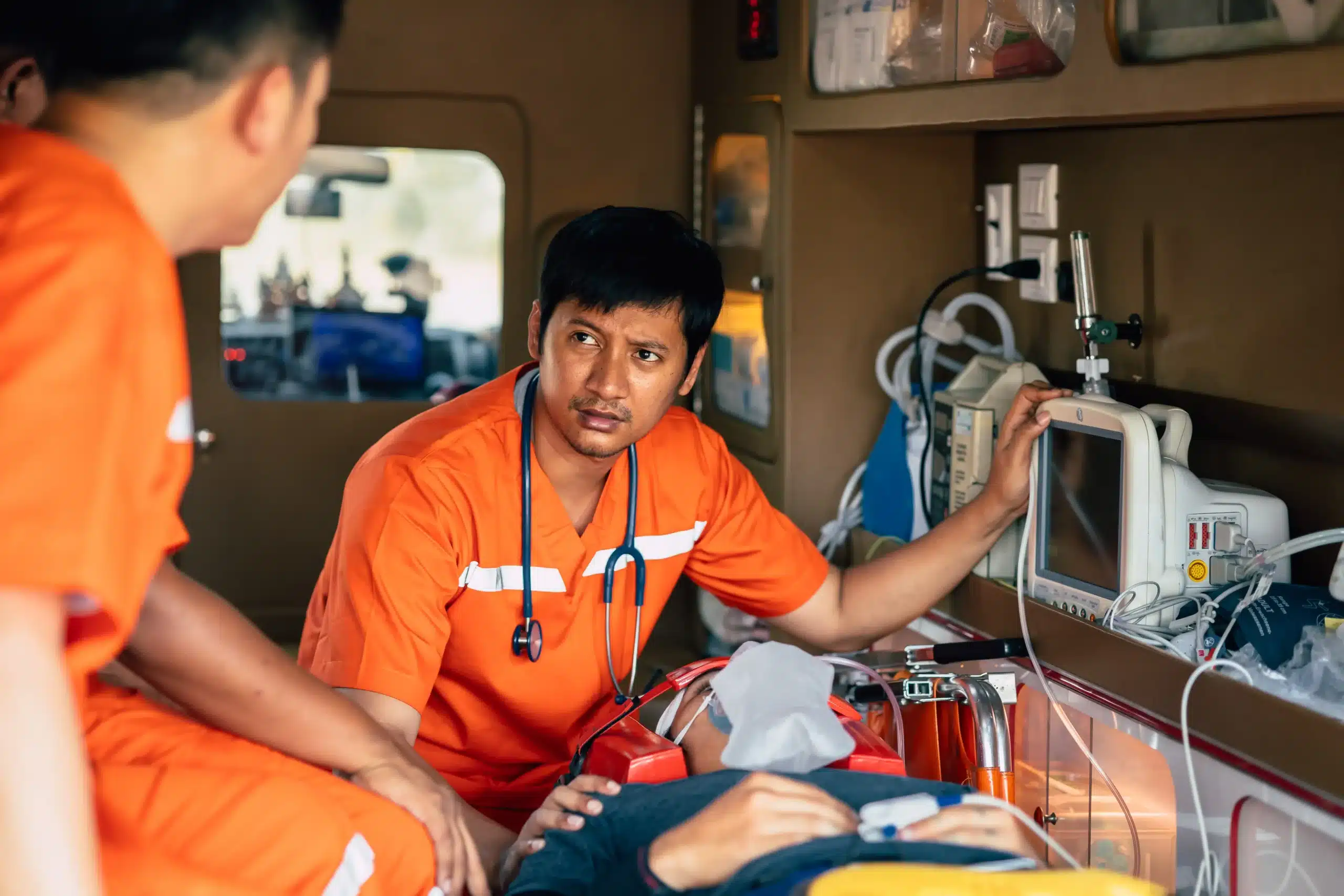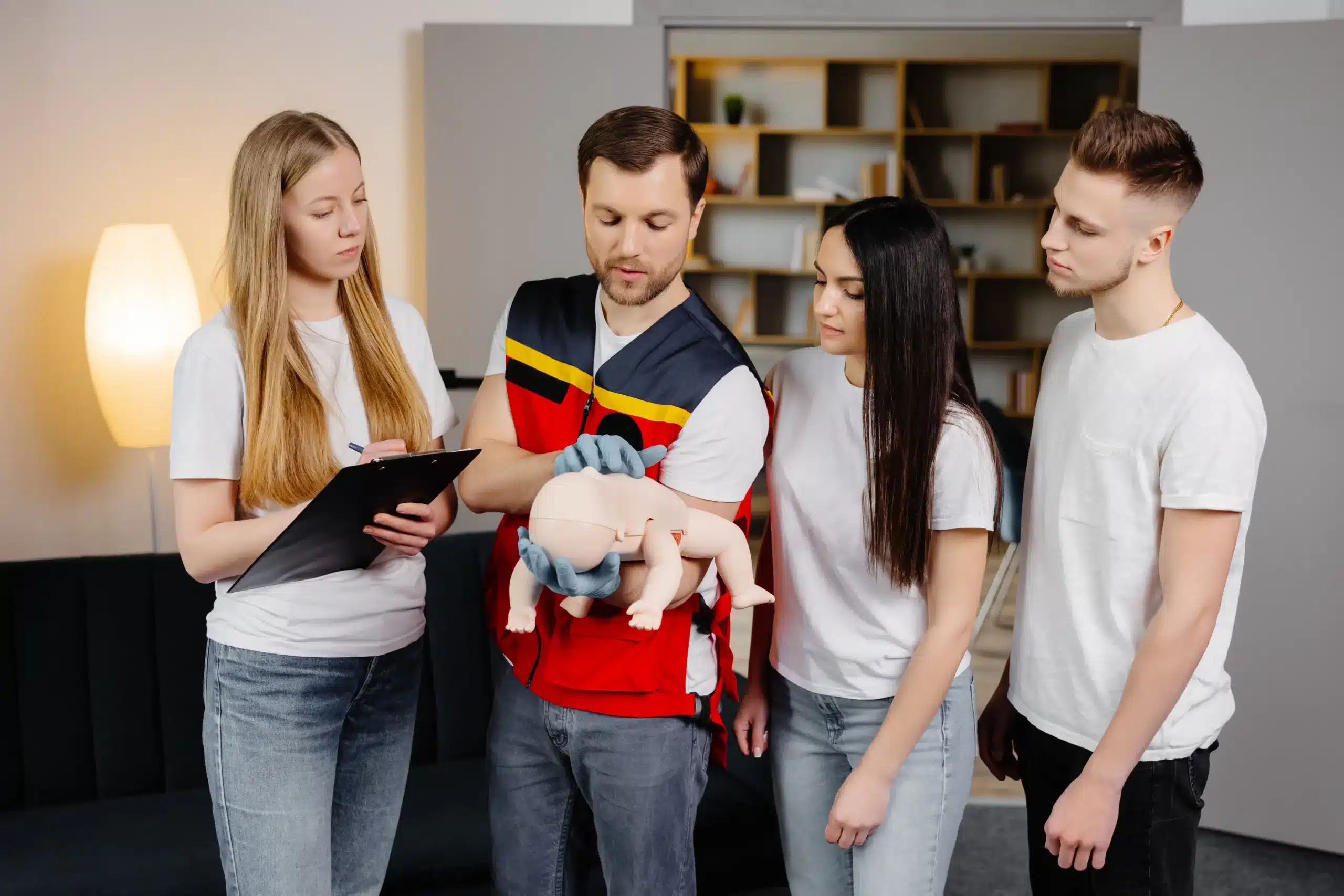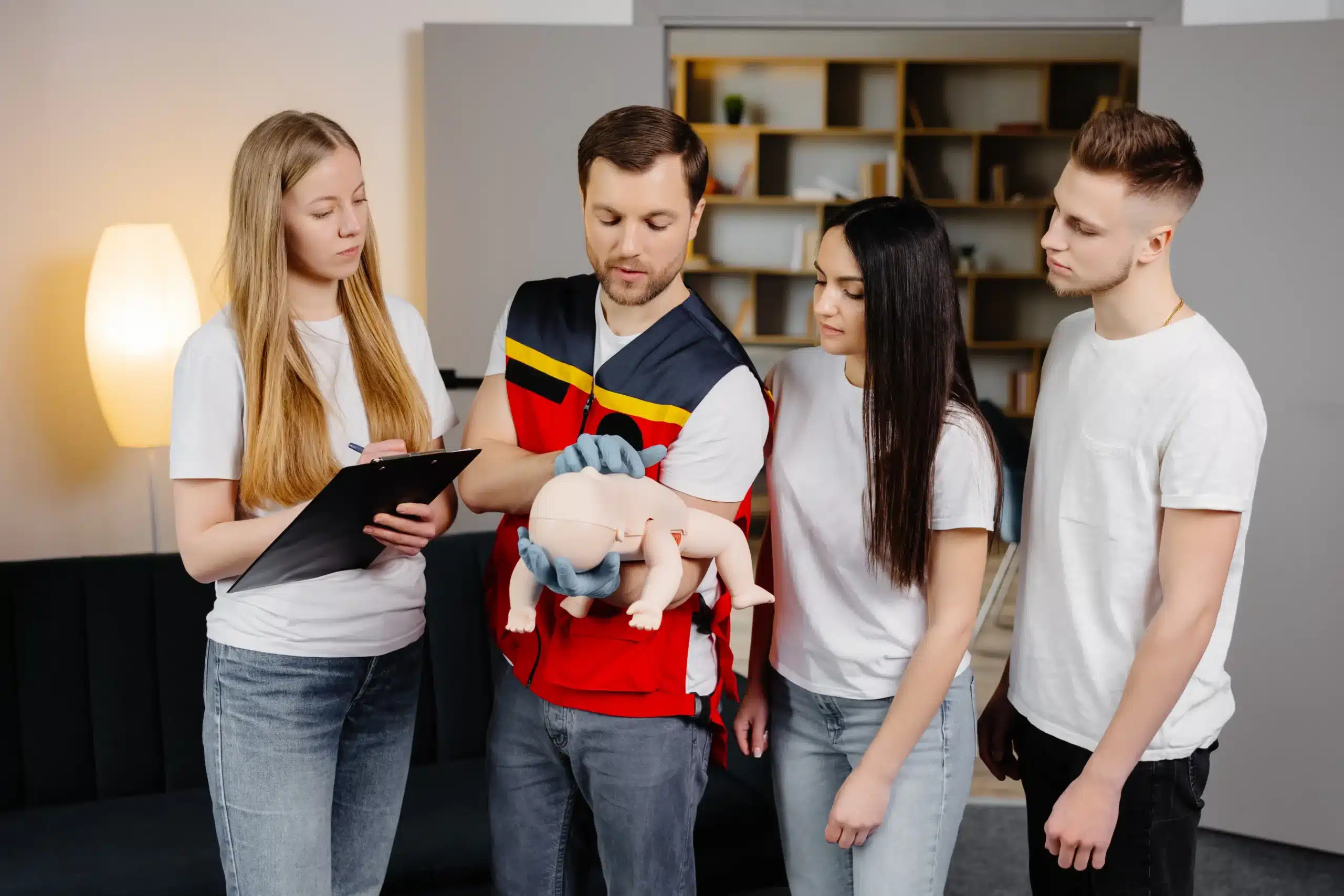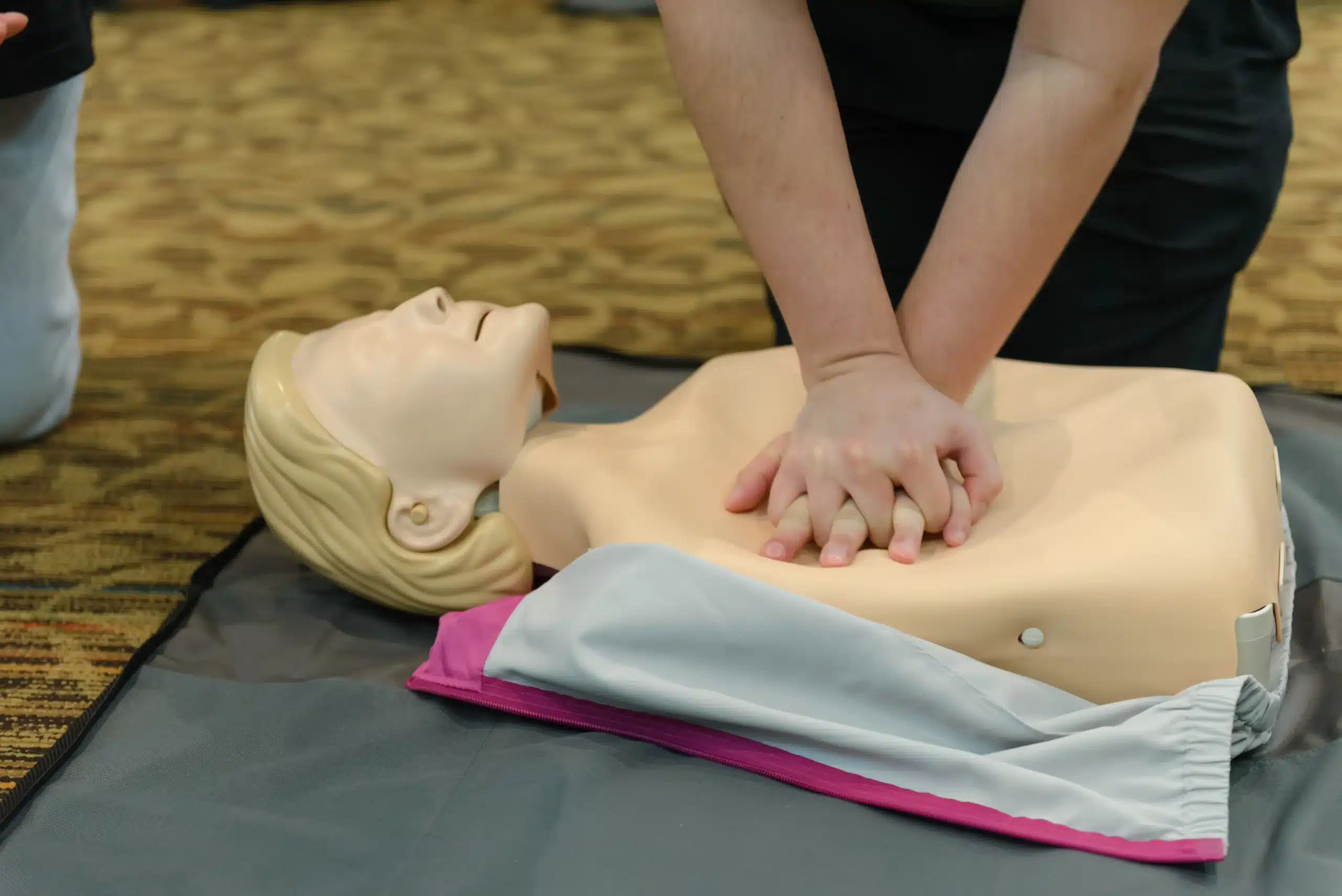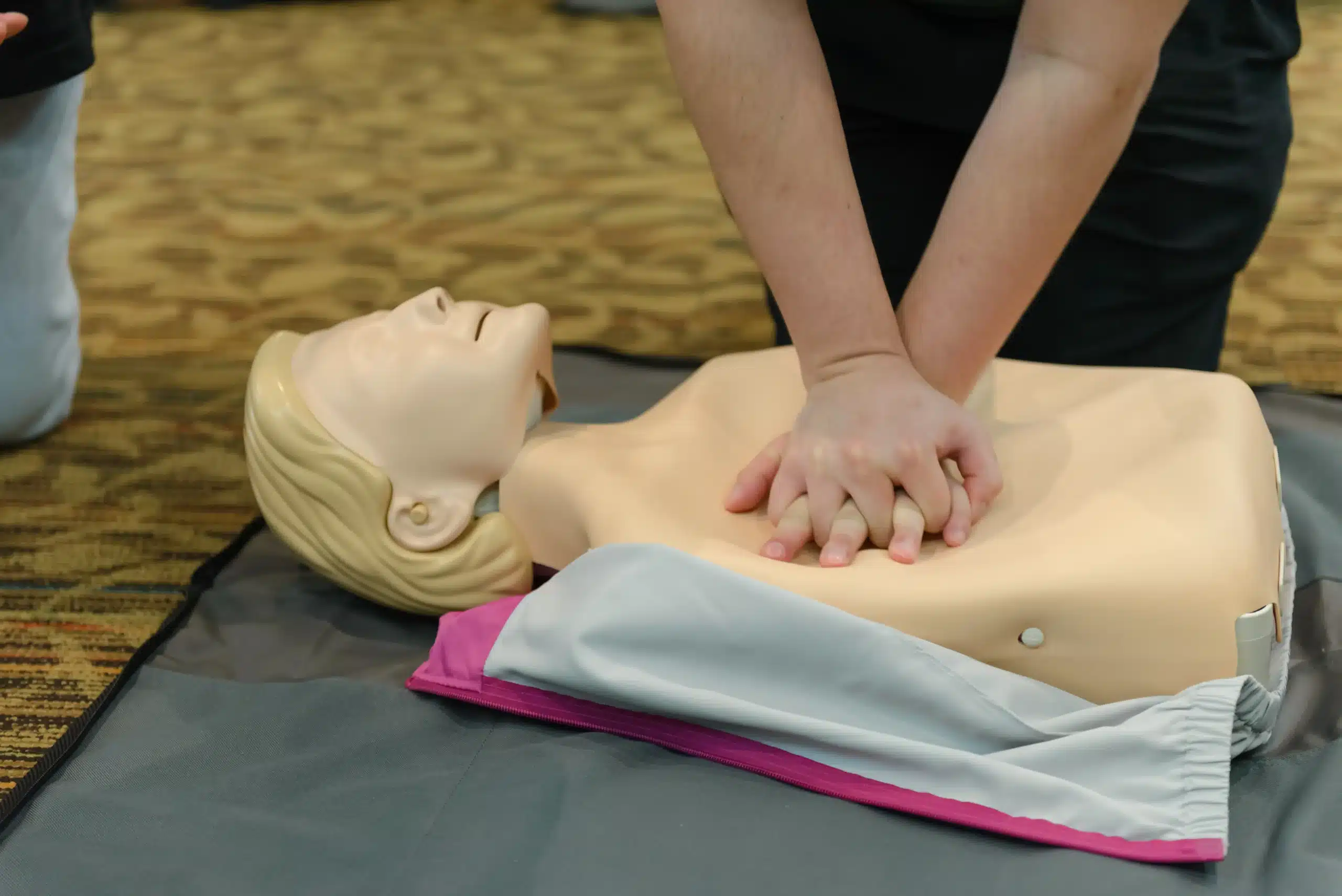For healthcare providers in San Francisco, ACLS certification is more than just a requirement; it’s a critical skill set that can save lives. This guide provides a comprehensive overview of ACLS courses in San Francisco, offering valuable information for anyone considering pursuing or renewing their certification. We’ll discuss the core components of ACLS training, compare different learning formats, and provide practical tips for preparing for your course. Whether you’re a seasoned healthcare professional or just starting your career, this article will equip you with the knowledge you need to make informed decisions about your ACLS training.
Key Takeaways
- ACLS is a vital skill for healthcare providers: It builds upon basic CPR, providing advanced techniques for managing complex cardiac emergencies and improving patient outcomes. Select a reputable, accredited training center for a recognized certification.
- Choose the right ACLS course format and provider: Consider your learning style, schedule, and budget when deciding between in-person, online, or hybrid learning. Research different providers and compare costs and course content.
- Maintain your ACLS skills through practice and continuing education: Recertify before your credentials expire and stay updated on the latest guidelines. Regular practice and continuing education are essential for providing effective patient care in real-world emergencies.
What is ACLS & Why is it Important?
Advanced Cardiovascular Life Support (ACLS) provides healthcare professionals with the knowledge and skills to handle cardiovascular emergencies. Think of it as a next-level response plan, going beyond basic CPR. It equips medical professionals, like ER physicians, nurses, and paramedics, with the tools to manage complex cardiac situations. This specialized training is essential for anyone working in a hospital or emergency setting.
ACLS certification courses cover advanced techniques, including medication administration, airway management, and interpreting heart rhythms. These skills are crucial for improving patient outcomes during cardiac arrest and other life-threatening events. The goal is to increase survival rates by preparing healthcare providers to act quickly and effectively. The American Heart Association offers more information on their ACLS Provider Course.
Holding an ACLS certification is often a job requirement in many US hospitals and emergency medical services. It signifies that a healthcare professional is trained in the most up-to-date, evidence-based practices. Not all certifications are accepted everywhere, so choosing an accredited provider, like Safety Training Seminars, is important. For more insights on ACLS certification and recertification, this resource is helpful. Cascade Training Solutions offers a helpful article addressing common misconceptions about ACLS.
Top ACLS Course Providers in San Francisco
Finding the right ACLS course can feel overwhelming, so we’ve compiled a list of reputable providers in San Francisco to simplify your search. Each offers unique advantages, catering to different learning styles and schedules.
Safety Training Seminars
Safety Training Seminars, a woman-owned AHA Training Center, prioritizes high-quality BLS, ACLS, PALS, CPR, and First Aid training. They are known for excellent customer service, with representatives available daily to answer questions and help you find the perfect course. Visit their website for course schedules and details on their low price guarantee.
HeartStart CPR
HeartStart CPR offers AHA-certified ACLS initial and renewal courses throughout the San Francisco Bay Area. A major advantage is their same-day certification cards issued upon successful completion. HeartStart CPR also provides continuing education credits for BRN and EMS professionals.
UCSF Kanbar Center
The UCSF Kanbar Center offers AHA certification courses in BLS, ACLS, and PALS. However, check their website for the latest updates, as course availability can change.
Bay Area CPR
Bay Area CPR provides ACLS courses with convenient testing sites across the Bay Area. Their website offers a comprehensive list of locations and contact information, plus transparent pricing that covers the online course, skills test, and AHA certification card.
ACLS Course Costs & Value
Getting ACLS certified is an investment in your career and the safety of those around you. Understanding the costs involved helps you plan and budget effectively. Let’s break down the typical expenses for ACLS courses in San Francisco.
Initial Certification & Renewal Costs
Initial ACLS certification costs vary depending on the provider and course format. You can expect to pay anywhere from $150 to $260 for your initial certification. For example, HeartStart CPR offers an initial ACLS certification course for around $260, which includes roughly 12 hours of instruction. Renewal courses are typically shorter, around six hours, and cost less—HeartStart CPR’s ACLS renewal is about $190. UCSF’s Kanbar Center offers a blended learning ACLS course with online learning and an in-person skills session, totaling around $258. Remember that prices can change, so it’s always best to check with the provider directly for the most up-to-date information.
Factors Affecting Costs
Several factors influence the final price of an ACLS course. Location plays a role, with courses in major cities sometimes costing a bit more. The course format also matters. In-person classes typically range from $150 to $200 and include both a written exam and a hands-on skills test. Some hospitals offer discounted ACLS training to their employees, so check with your employer if you work in healthcare. The American Heart Association (AHA) also offers a hybrid option: an online, self-directed component (HeartCode ACLS Part 1) for around $120 and a separate in-person skills session for about $50. This blended format offers flexibility and can be a good option for those with busy schedules.
Finding Discounts & Special Offers
It’s always a good idea to look for discounts or special offers before registering for an ACLS course. Providers often run promotions, so check their websites or social media for deals. Safety Training Seminars strives to keep their AHA courses (including CPR, BLS, ACLS, and PALS) competitively priced, making these essential, life-saving skills accessible to everyone. Don’t hesitate to contact providers directly and ask about any current discounts—a little research can save you money.
Choosing the Right ACLS Course Format
Finding the right ACLS course format depends on your learning style, schedule, and preferences. Let’s explore in-person, online, and hybrid learning options.
In-Person Training
In-person ACLS training offers a structured, hands-on learning environment. Many healthcare providers appreciate the direct interaction with instructors and the opportunity to practice skills in real-time with their peers. This format allows for immediate feedback and clarification, which can be invaluable for mastering complex procedures. If you thrive in a traditional classroom setting and value face-to-face instruction, in-person training might be your best fit.
Online Courses
Online ACLS courses provide flexibility for those with busy schedules or limited access to physical classrooms. These courses typically involve online modules, interactive simulations, and a required in-person skills test. This blended learning approach allows you to complete the cognitive portion of the course at your own pace, from anywhere with an internet connection. ACLS certification and recertification courses are readily available online.
Hybrid Learning
Hybrid ACLS courses combine online learning with hands-on practice. You’ll complete the theoretical coursework online through self-directed modules and then schedule a separate in-person skills session. This format offers a good balance of flexibility and hands-on practice. Working through realistic training scenarios helps bridge the gap between theory and practice, preparing you for real-world emergencies. Hybrid learning can be particularly helpful for those who prefer to learn at their own speed but still want the benefit of hands-on instruction.
ACLS Course Duration & Curriculum
Time Commitment
Planning your time is key when pursuing ACLS certification. Initial ACLS courses typically require about 12 hours and cost around $260. Renewal courses are shorter, usually about 6 hours, costing around $190. Some providers offer combined ACLS and PALS courses, which can take about 11 hours total—often structured as 7 hours of online learning and 4 hours of in-person training. These combined courses can be a smart way to earn both certifications. Check with your chosen provider, like Safety Training Seminars, for specifics on course length and pricing.
Key Topics Covered
The ACLS curriculum equips healthcare professionals with the skills to manage cardiopulmonary emergencies. You’ll learn essential skills like recognizing heart rhythms, managing airways, and administering medications. This training is vital for anyone working in a hospital or emergency services. ACLS certification is a standard requirement for most US hospitals, so choosing a comprehensive course is crucial. Whether you choose Safety Training Seminars or another provider, verify the course aligns with the latest American Heart Association guidelines, as non-AHA certifications may not be accepted everywhere.
Hands-On Skills & Testing
ACLS courses typically involve online learning and a hands-on skills test. The online portion often takes 3-4 hours, followed by a 30-40 minute in-person skills test. Providers like Bay Area CPR often have convenient testing locations. Complete the online portion before your in-person skills session. The hands-on portion uses practical scenarios simulating real-life emergencies, allowing you to apply your knowledge and build confidence. This practical experience is invaluable for effective patient care.
Essential ACLS Skills
This section covers the core skills you’ll develop in an ACLS course. These skills are crucial for effective patient care during cardiovascular emergencies.
High-Quality CPR & Cardiac Arrest Recognition
High-quality CPR is the cornerstone of successful resuscitation. It involves consistent compressions at the correct depth and rate, allowing for full chest recoil. This maximizes blood flow to vital organs. Early identification of cardiac arrest and prompt CPR drastically improves a patient’s chances of survival. For a deeper understanding of ACLS, including CPR best practices, check out this helpful article by Cascade Training Solutions.
AED Use & Pharmacology
ACLS training goes beyond basic CPR to encompass using an Automated External Defibrillator (AED) and administering appropriate medications. Knowing how and when to use an AED is critical in managing cardiac arrest. You’ll also learn about the various medications used in these emergencies and how they help stabilize a patient. Safety Training Seminars offers comprehensive ACLS courses covering these essential skills.
Team Dynamics & Effective Communication
Working effectively as a team is essential in any medical emergency. ACLS courses emphasize clear, concise communication during resuscitation. This includes closed-loop communication, where team members confirm instructions, and debriefings to analyze performance and identify areas for improvement. ACLS Now provides valuable insights into improving team performance in ACLS scenarios. Strong team dynamics and effective communication ensure coordinated efforts and the best possible patient outcome.
Prepare for Your ACLS Course
Getting ready for your ACLS class doesn’t have to be stressful. With a little preparation, you can walk into the classroom feeling confident and ready to learn. Here’s what you should know:
Prerequisites & BLS Certification
While you don’t technically need BLS (Basic Life Support) certification before taking ACLS, having a solid grasp of BLS principles will give you an advantage. Think of it as building a strong foundation. Most hospitals and emergency services require AHA certifications, so it’s best to ensure your training aligns with their standards. This ensures your certification will be widely recognized. You can find our course schedule for BLS certification on our website.
Study Materials & Resources
ACLS courses typically involve lessons, skills training videos, and practice exams. Many providers offer study materials to help you prepare. Reviewing the ACLS guidelines and algorithms beforehand can significantly improve your learning experience. You’ll need to pass both the skills test and the final exam (with a score of 80% or higher) to earn your certification.
What to Bring
Before heading to your ACLS course, check the provider’s website for class times and pricing. Having a current BLS Provider Manual, either a physical copy or an ebook, can be helpful during the course. If you need to pick up a textbook, call ahead and arrange that with your course provider. We offer a low price guarantee on our courses.
Overcome ACLS Training Challenges
ACLS training and certification are rigorous, but with the right preparation and mindset, you can overcome common challenges and succeed. Here’s how to address some key hurdles:
Manage Time & Handle Pressure
The fast-paced nature of ACLS scenarios can feel overwhelming. Effective time management is crucial. During your training, practice prioritizing tasks and making quick decisions under pressure. Think of it like a simulated real-life emergency—you’ll need to stay calm and focused. One helpful strategy is to break down complex scenarios into smaller, manageable steps. This approach can help you stay organized and avoid feeling overwhelmed. For more tips, Cascade Training offers further insights into common ACLS assessment challenges and practical solutions.
Communicate Effectively in Teams
ACLS scenarios often involve teamwork, making clear communication essential. Practice using concise and standardized language, ensuring everyone understands their roles and responsibilities. Closed-loop communication, where you confirm instructions are received and understood, is valuable in these high-stakes situations. Regular debriefings with your team can also improve performance by identifying strengths, weaknesses, and areas for improvement.
Apply Knowledge to Real-Life Scenarios
ACLS isn’t just about memorizing algorithms; it’s about applying your knowledge in dynamic situations. Realistic training scenarios prepare you for the situations you might encounter in a hospital or emergency setting. Engage actively in these simulations, asking questions and seeking feedback from instructors. Reflecting on how different elements of your training apply to real-world situations will deepen your understanding and improve your preparedness.
Maintain Your ACLS Certification
Once you’ve earned your ACLS certification, staying current is crucial for providing the best possible patient care. This section covers everything you need to know about renewing your credentials and keeping your skills sharp.
Renewal Requirements & Timelines
ACLS certification is valid for two years. To maintain your credentials, you’ll need to recertify before it expires. The American Heart Association (AHA) no longer offers separate renewal courses. All students attend the same four-hour in-person ACLS course, whether renewing or taking it for the first time. This streamlined approach ensures everyone receives the most up-to-date training and guidelines.
Continuing Education
Continuing education is key for maintaining your ACLS certification and advancing your medical career. Continuing education credits (CEs) are often available for registered nurses and EMS professionals through these ACLS courses. These credits can help you meet professional development requirements while also strengthening your advanced cardiac life support skills. Staying informed about the latest advancements in the field is essential for providing high-quality care.
The Importance of Regular Practice
Regular practice is paramount for maintaining ACLS proficiency. Think of it like any other skill—the more you practice, the more confident and prepared you’ll be in a real emergency. Reviewing ACLS algorithms and protocols, participating in mock codes, and engaging in debriefing sessions after training scenarios can significantly improve your performance. By consistently practicing, you’ll be better equipped to handle the pressure and make quick, informed decisions when they matter most. Consider supplementing your training with resources that offer insights into common mistakes to avoid during ACLS training. This proactive approach can make a real difference in patient outcomes.
Choose the Right ACLS Provider in San Francisco
Finding the right ACLS provider is crucial for a positive and effective learning experience. Here’s what to consider when making your decision:
Evaluate Provider Reputation & Accreditation
Look for a provider with a solid reputation and proper accreditation. An accredited American Heart Association (AHA) Training Center, like Safety Training Seminars, ensures the courses meet the AHA’s high standards, essential for receiving credible and recognized certification. Check online reviews and testimonials to understand past student experiences. Word-of-mouth referrals can also be helpful.
Instructor Qualifications & Experience
The instructor’s expertise directly impacts your learning. Inquire about the instructors’ qualifications, experience, and teaching style. Experienced instructors provide practical insights and create engaging learning environments. For example, Safety Training Seminars prioritizes experienced, certified instructors passionate about teaching these life-saving techniques.
Course Quality & Support
Consider the overall course quality and the support offered. A good ACLS course should offer comprehensive materials, interactive learning, and ongoing support. Features like real-time CPR feedback, as discussed by Cascade Training, can significantly improve your skills. Check if the provider offers refresher courses or continuing education to maintain your certification.
Related Articles
- Advanced Cardiac Life Support (ACLS) in Daly City – San Francisco CPR Classes
- ACLS HeartCode Oakland: Your Certification Guide – San Francisco CPR Classes
- ACLS Renewal in SF: Your Complete Guide – San Francisco CPR Classes
- Best Online ACLS Classes in San Francisco – San Francisco CPR Classes
- AHA ACLS Classes in San Francisco (Bayshore) – San Francisco CPR Classes
Frequently Asked Questions
Why is ACLS certification important? It’s a vital credential for healthcare professionals working in emergency or critical care settings. It signifies you’re trained in advanced life-saving techniques beyond basic CPR, ultimately improving patient outcomes during serious cardiovascular events. Many hospitals and emergency medical services require ACLS certification as a condition of employment.
How much does an ACLS course cost in San Francisco? Costs typically range from $150 to $260 for initial certification and slightly less for renewal courses. Factors like the provider, course format (in-person, online, or hybrid), and any included materials can influence the final price. It’s always best to check directly with the training center for the most up-to-date pricing.
What’s the difference between in-person, online, and hybrid ACLS courses? In-person courses offer a traditional classroom setting with direct interaction with instructors. Online courses provide flexibility, allowing you to learn at your own pace from anywhere with internet access, but usually require a separate in-person skills test. Hybrid courses combine online learning with hands-on skills sessions, offering a balance of flexibility and practical experience.
How long does it take to get ACLS certified? Initial ACLS certification typically requires around 12 hours of training, while renewal courses are usually shorter, around 6 hours. Combined ACLS and PALS courses can take approximately 11 hours. The exact duration depends on the specific course and provider.
How do I maintain my ACLS certification after I’ve earned it? ACLS certification is valid for two years. To recertify, you’ll need to complete another ACLS course before your current certification expires. The AHA no longer offers separate renewal courses; everyone attends the same course, ensuring all healthcare providers receive the most current training and guidelines. Regular practice and continuing education are also essential for maintaining your skills and knowledge.


